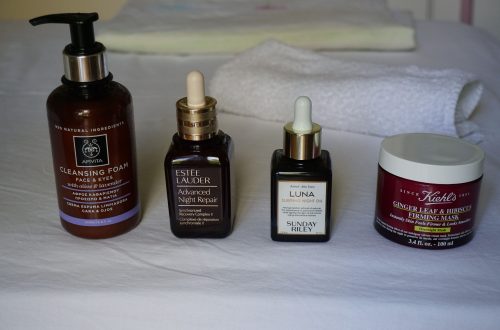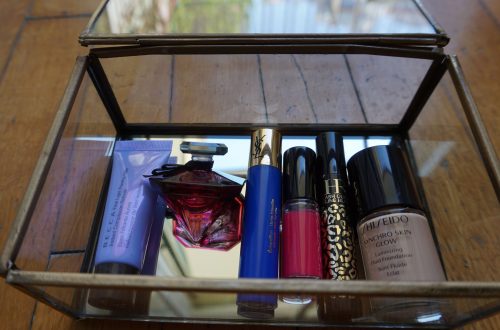
Consuming Digital Content Pt 3 :: Avoid Over-Spending
Hello there! Today as a part of the series for consuming digital content, I thought it would be nice to talk about over-spending money shopping online. You can find Part 1 here, and Part 2 here. The online market has flourished. It is so easy to make purchases from the comfort of our houses and get goods delivered to our doorsteps, it is so easy to transfer money online with e-banking. Affiliate links market has bloomed. People share their favourite products or write reviews about them. How many times have you bought something you did not intend to, but did buy it because of a review or an ad you saw? Do not feel guilty. I have been there, done that, several times, and I am here to give you my tips!

Why it is so easy to over-spend
Nowadays, marketing has evolved so much that it actually uses methods from neuroscience and companies have specialised departments for research. Their job is to market products based on past consumption data, mathematical models and ideas from scientific papers on neuroscience and psychology. Marketing is targeted, which means it is personalised to you. It is very important that you know that e-shops you are shopping from might use the data from your purchases in order to track your shopping style. Many also use remarketing adverts based on the cookies in your browser to push you to buy more stuff. These marketing techniques actually leverage scientific results on how our brain works.
For example, our brains think with pictures and repetition helps us build habits, which are automatic behaviours. When a company sends you an e-mail “Have you forgotten those in your basket?”, “Look at our new skincare products” or you see products on Google ads that you were looking at the other day, it is not a coincidence. You are actually getting more and more familiar with the product and you start wanting it.
What is more, e-shopping is ridiculously easy. I wish bureaucratic procedures were made as easy as shopping! They are not, of course, because companies want it to be as easy as it can when it comes to selling. They offer multiple payment methods, a basic set of forms to fill in, quick and easy checkout or even one-click checkout. On the other hand, with credit cards and debit cards, you can’t actually see the money you are giving away. You know you pay, but it is not the same as paying in cash. When using cash, you count your bills during the transaction and you see them changing hands. It feels more like losing them and getting a product in return. With plastic money, it feels as if you are given a gift: “oh look! my parcel arrived! Time to unbox!”. Does this sound familiar? 🙂

What you can do
Be aware of the marketing techniques being deployed. Unsubscribe from e-mailing lists, block ads, or at least be aware of the fact that when a company is addressing you it is actually because they want to sell, they want to make a profit. Knowing that makes a huge difference in the style you buy.
Say ‘I have enough’ a couple of times. I learnt that from Marisa Peer. It works and she is fab if you want to check her website. Chances are you have enough and you do not need more. Think of dupes. Things that serve the same purpose with little differences.
Tidy your things. That goes hand in hand with the previous bullet. When everything is out of order, you can’t actually find what you want, at least find it easily. That makes you forget about it and then think that you don’t own it and therefore should buy again. Declutter, tidy and see that what you are missing is right in front of you.
Have a bigger financial goal. Suppose you want to save for a new car or a new house. Isn’t it better when you put the money for 20 eyeshadow palettes into a car? Buy it two or three months faster than if you had bought the eyeshadows? How much money do you think you spend with your current habits for over a decade? Small amounts do matter when you consider a long period of time. Habits are also exercised for long periods of time. How much money do you think that Google charges for sponsored search results? Only a few cents per click. But it makes billions in one year.
I hope you found this helpful! I would love to know your thoughts! Comment below!
xo, Helen




